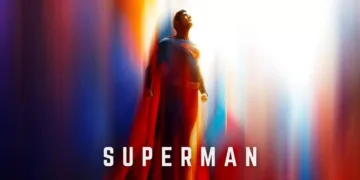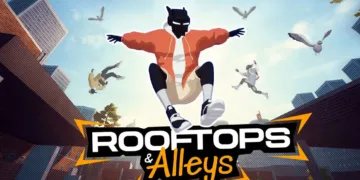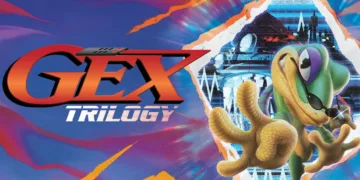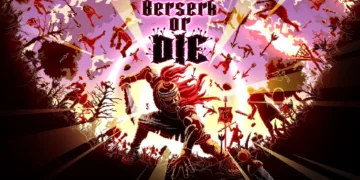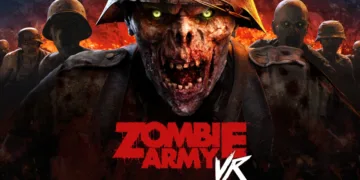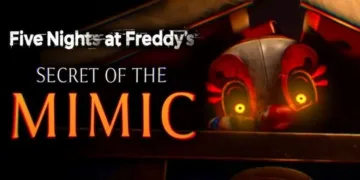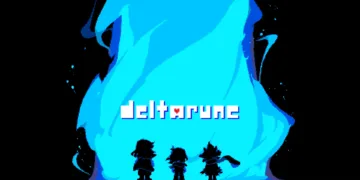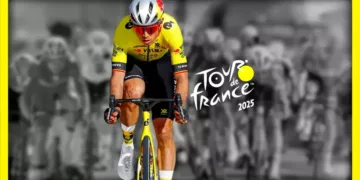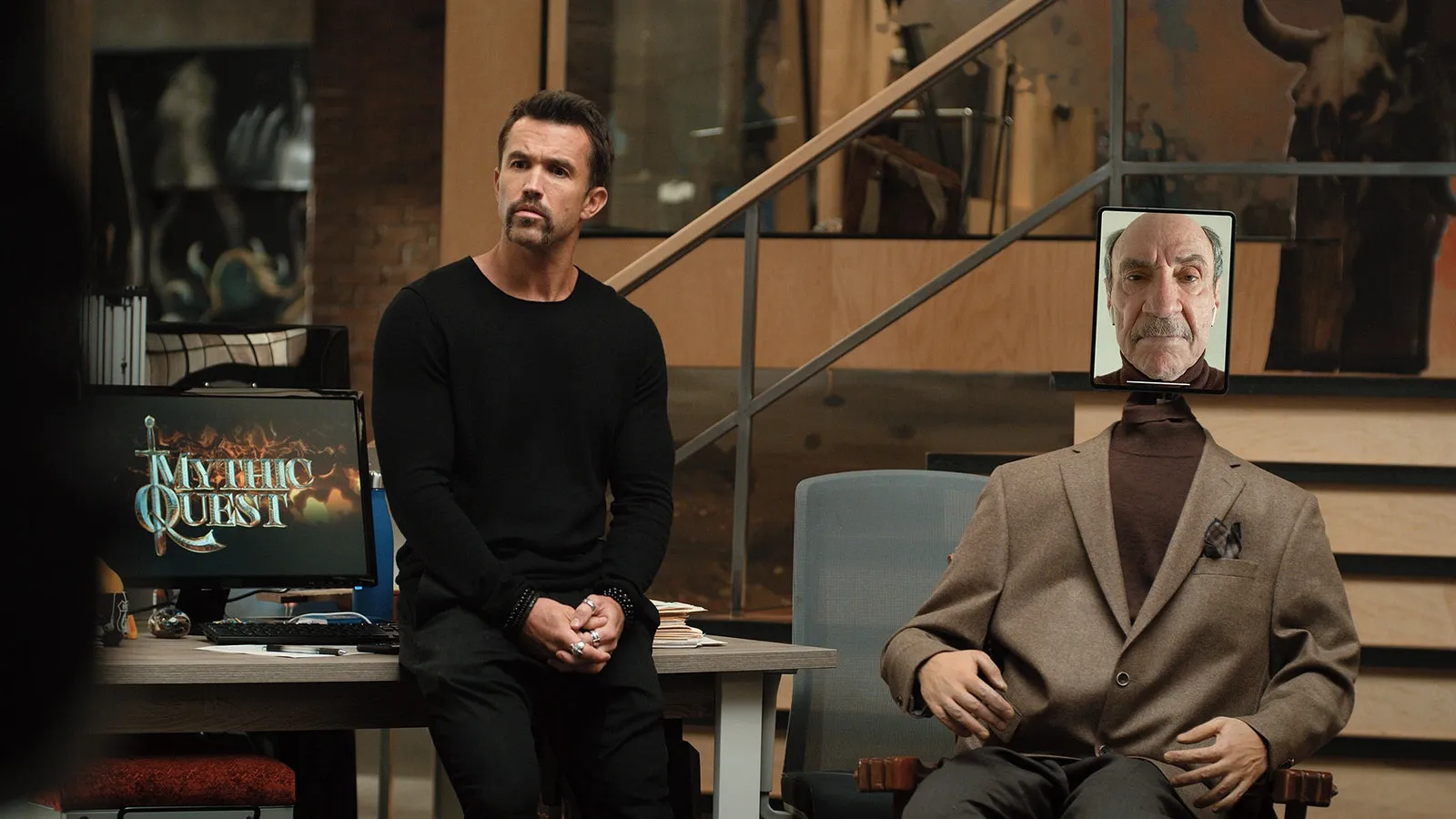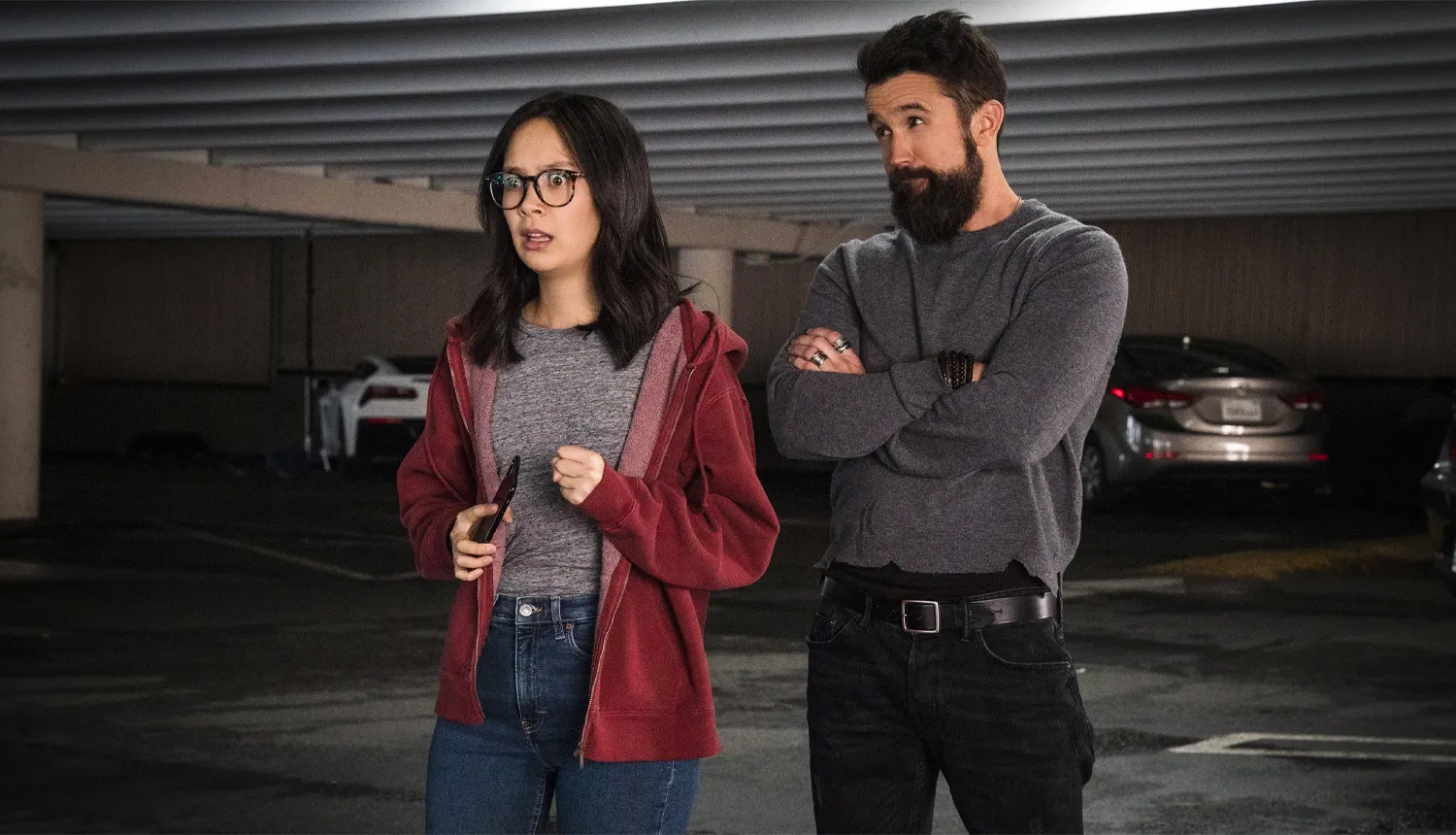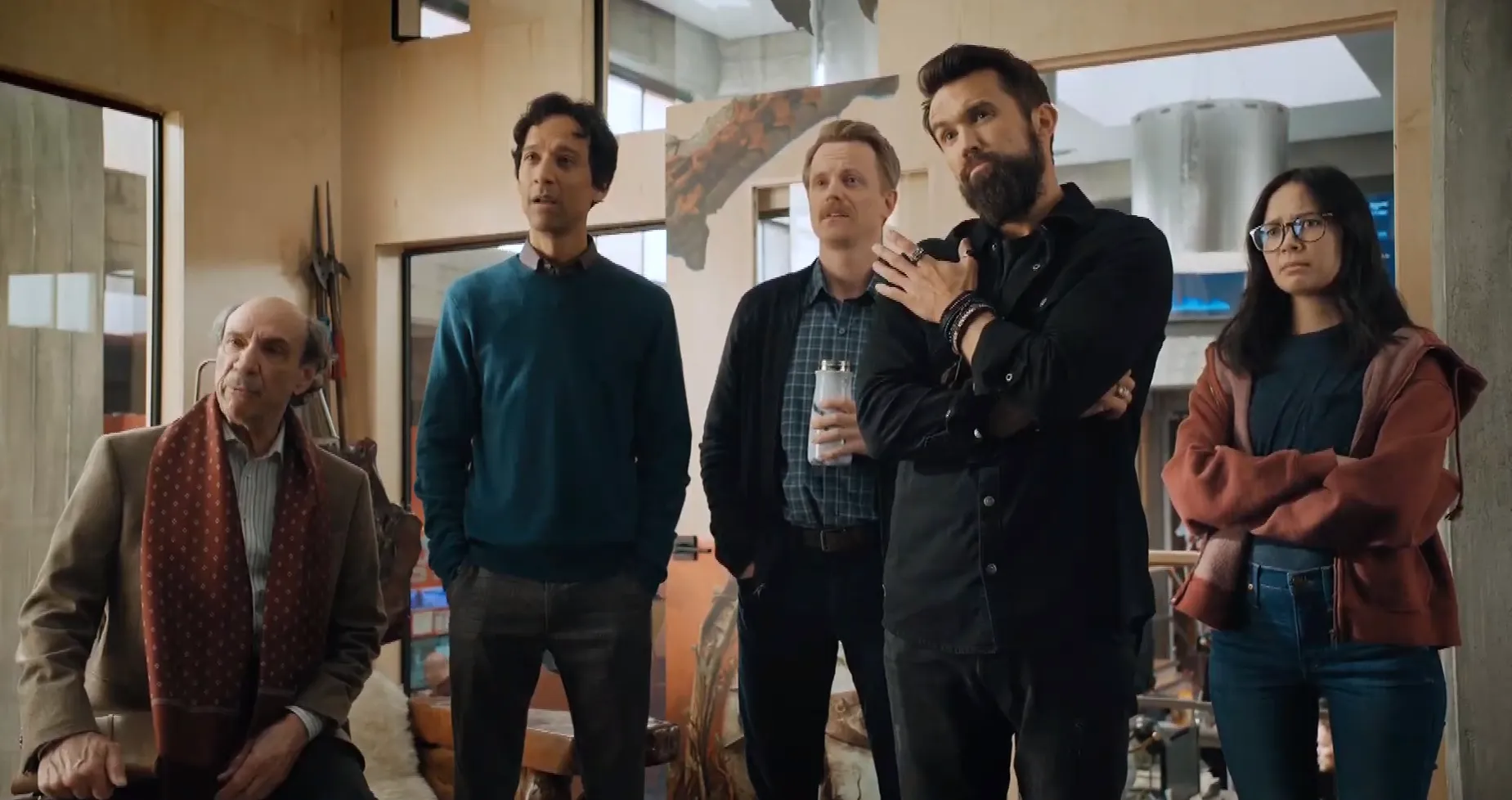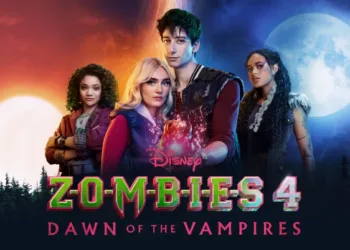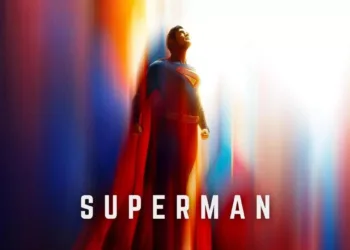In the shadowed theater of their connection, Poppy and Ian circle each other like binary stars—intertwined, burning, yet constantly risking disintegration. Storm’s arrival—a sculptor of code and sentiment—shatters their intricate gravitational bond. He emerges less as a competitor and more as a reflective surface, illuminating the vacant spaces within Poppy’s existence where work once consumed every fragment.
Ian’s reaction transcends romantic jealousy; it represents an existential tremor of an artist confronting personal obsolescence. What remains of a creator stripped of inspiration? A dethroned deity, grasping fragile vestiges of former belief.
Their tension vibrates with an unspoken inquiry: Can a partnership constructed through shared ambition withstand the gradual erosion of one spirit’s driving force?
When Ian generates AI replicas to sustain their creative connection, the experiment transforms into a monument commemorating lost humanity. These digital specters—pale shadows of emotion and intellect—mock technological efficiency’s blind worship. The machines pulse with mechanical precision, sterile echoes of a bond once crackling with raw energy. By automating their synergy, Ian inadvertently reveals his deepest fear: their relationship might be mere calculation, devoid of true magic.
Poppy’s response signals quiet rebellion. She glimpses an expansive landscape beyond the screen—the raw, uncharted terrain of unrestrained existence.
Her transformation emerges not as victory but as systematic deconstruction. Prioritizing self over structured systems means confronting the emptiness where identity once clung to productivity. Ian clenches his pride like a child’s comfort object, its luminescence fading as Poppy’s world expands. Their previous sanctuary now feels like an ornate prison. The moment balances precariously, questioning not if they will fracture, but whether emerging fissures might usher in illumination—or simply accelerate decay.
The Hollowed Chorus: Discord and Desperation in Mythic Quest’s Ensemble
In the sterile corridors of Mythic Quest’s corporate ecosystem, Dana’s journey unfolds like a digital parable. Her game, Cozy Galaxy, emerges as a fragile bloom amid stark institutional walls, vulnerable to financial pruning and strategic calculations.
Success morphs into a constraining mechanism, tightening with each recognized achievement. Rachel exists at a precarious intersection—part passionate creator, part cold strategist—her allegiances fractured, generating intense energy that simultaneously builds and destroys.
Brad prowls through organizational shadows, a calculated predator dressed in crisp attire. His machinations resemble a complex choreography performed across spreadsheet landscapes. His connection to Dana remains an enigmatic question mark, suspended in an atmosphere crackling with compromised dreams.
David embodies institutional nostalgia, clutching remnants of pre-pandemic economic blueprints like fragile relics. His congressional dialogue with Rachel spirals into an absurdist theater of corporate survival—two performers trapped in a narrative of diminishing relevance. Corporate language rings hollow, a liturgy chanted by ghosts of outdated ambitions.
Jo and Brad occupy peripheral spaces, subversive spirits challenging institutional structures. Jo weaponizes wit, transforming sarcasm into a tool of disruption. Brad shifts between mercenary tactics and mentorship, his loyalty perpetually undefined. They guard Dana’s potential like sentinel creatures, protecting something undefined yet precious—a creative spark struggling against systemic erosion.
The narrative pulses with dark comedy, revealing institutional decay beneath polished surfaces.
The Sisyphean Harvest: Cultivating Meaning in Barren Soil
The illusion of work-life equilibrium emerges as a capitalist phantasm, its promise as ephemeral as the silent hum of servers in a vacant workspace. Poppy’s repetitive chant becomes less a proclamation and more a curse, a spell woven to rationalize self-immolation on productivity’s stark altar.
Her dichotomy—creator and creation—reflects the twisted logic of contemporary grind culture, where personal worth calculates purely through output, and respite registers as a systemic error.
Ian wanders this barren landscape like a wandering mystic, his entire worldview constructed from unstable digital fragments of a game slipping from his grasp. Contemplating existence beyond the screen would mean confronting an overwhelming void; survival demands clinging to the familiar ache of relentless labor.
Dana’s trajectory exposes the underlying decay. Her Cozy Galaxy—a digital utopia—transforms into a constraint of external expectations, her achievement a verdict condemning her to perpetual youth in an industry that discards what cannot be monetized. The characters drift through corporate liminal spaces, their souls suspended in institutional amber. David’s desperate social negotiations and Jo’s chaotic transformations resonate with this stunted growth, each movement a fragmented attempt at connection.
The narrative traces the contours of systemic exhaustion, where individual narratives become mere data points in a larger algorithmic tapestry of human expendability.
Labyrinths of Illusion: Mythic Quest’s Genre Masquerades and the Ghost in the Machine
The murder mystery episode explores characters’ hidden depths, revealing layers beneath polished exteriors. Within the manor’s elaborate setting, costumes expose internal tensions. Participants navigate complex social dynamics, where unspoken rules govern interactions.
Ian struggles with self-doubt, his detective persona concealing vulnerability. David’s awkward investigations hint at deeper emotional isolation. Jo’s protective instincts toward Dana suggest complex relationship dynamics. The narrative probes the tension between external performance and internal truth.
Rebrand examines personal transformation through unconventional storytelling. Ian’s son experiences adolescence as a nonlinear journey, with animated sequences blending reality and imagination.
The episode challenges traditional narratives of growth, presenting self-discovery as a messy, unpredictable process. Virtual reality segments question individual agency and identity construction. Characters wrestle with their roles, blurring lines between active participants and passive observers.
Ian’s AI replicas expose technological anxieties surrounding creativity and identity. Digital duplicates critique Silicon Valley’s technological obsession, revealing tensions between human creativity and algorithmic reproduction. Poppy’s rejection of her algorithmic twin becomes a statement against technological reduction of human experience. The segment critiques industrial approaches to artistic production, highlighting the intrinsic value of human imperfection and spontaneity.
The Gallows of Laughter: Satire as Existential Armor in Mythic Quest’s Corporate Carnival
Comedy in the fourth season of Mythic Quest corrodes like decay on a crumbling system, its humor a sickly glow masking underlying decay. Playpen’s transformation into “animated excess”—a chaotic realm of user-generated content—reflects humanity’s raw impulses, where freedom spawns disorder and creativity mutates into vulgarity.
The Overcooked parody transcends simple mockery, becoming a stark metaphor of endless toil without reward, consumption without satisfaction.
David’s awkward attempts to connect with younger audiences—mangling slang, dancing with robotic stiffness—expose a man desperately clinging to relevance in a world that discards him momentarily. His performance emerges as pure tragicomedy, a vaudeville act performed at civilization’s precipice.
Poppy’s scattered double entendres function as linguistic shields, concealing the distance between her technical brilliance and social ineptitude. Each stammered quip reveals her struggle to bridge emotional gaps. Jo’s “Ethics Committee” meetings mock institutional control—her power struggles a frantic dance on unstable ground. Brad articulates moral compromise with zen-like calm, his deadpan strategies revealing corporate indifference.
VR headset mishaps—characters colliding with invisible obstacles—become physical metaphors for disconnection between dreams and reality. Storm’s art installations scream silent critiques of commercialism, questioning existential meaning amid technological noise. David’s pandemic profit charts whisper uncomfortable truths about nostalgia’s numbing effect.
The Masks of Creation: Performances as Mirrors of Fragmented Selves
Charlotte Nicdao’s Poppy emerges as a whirlwind of human complexity, her inner struggles dancing between genius and fear. Her trembling hands reveal ambition as both shield and scar—a woman wrestling with her own potential, dreading its consuming power.
GrimPop’s shadow drapes her shoulders, weighing down her spirit like an invisible burden. Within Storm, Nicdao’s voice transforms—soft, fragile, exploring whether connection might redefine her existence.
Rob McElhenney’s Ian stares into technological reflections, watching his self-image fragment. Physical comedy erupts through his performance—explosive movements revealing deeper vulnerabilities. His swagger masks a raw dread of irrelevance, each gesture a defiant cry against technological erasure.
Imani Hakim’s Dana embodies disenchantment. Her gaze carries the remnants of past dreams, now tempered by industrial constraints. Danny Pudi’s Brad moves through ethical shadows with calculated precision, while Jessie Ennis’ Jo transforms workplace absurdity into a visceral statement.
Megan Ganz crafts a narrative tapestry where humor and darkness intertwine. Sabrina Rosen’s costume designs challenge perception—elegant cuts meeting rebellious graphics. Playpen’s environment suggests a fractured world: corporate sterility bleeding into digital playgrounds.
Each character asks a silent question: Who controls our narrative—ourselves or the systems surrounding us?
The Review
Mythic Quest Season 4
Mythic Quest's fourth season explores the tension between creativity and corporate structures. Charlotte Nicdao's Poppy portrays a complex journey from passionate developer to disillusioned creator. The season navigates workplace dynamics through nuanced character arcs. Some narrative elements feel uneven, with certain character developments struggling to maintain depth. Despite occasional missteps, the show delivers compelling moments that examine personal and professional struggles. The season probes the challenges of artistic integrity within structured environments, presenting characters wrestling with their aspirations and limitations.
PROS
- Nuanced character evolution (Poppy’s vulnerability, Ian’s ego-as-armor)
- Standout genre-blending episodes (murder mystery, AI satire)
- Sharp critique of corporate culture and creative burnout
- Charlotte Nicdao’s career-best performance
CONS
- Jo’s arc verges on underdeveloped absurdity
- AI commentary lacks narrative follow-through




























